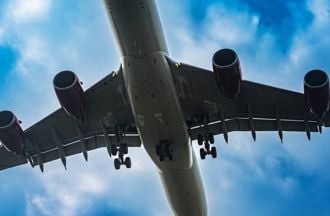
Belem – The International Air Transport Association (IATA), together with the governments of Japan, Malaysia, and leading industry stakeholders, have issued a joint statement at COP30 (pdf), urging governments and the international community to reaffirm the International Civil Aviation Organization (ICAO)’s leadership and accelerate coordinated climate action for aviation to reach net zero carbon emissions by 2050.
Specifically, the signatories highlight the need for global solutions, emphasizing that ICAO remains the exclusive forum for addressing international aviation emissions. The signatories caution against fragmented or unilateral measures, stressing that only a unified approach can deliver effective climate results for the sector. The signatories also stress the role of robust global carbon markets in scaling up climate finance opportunities, which is high on the COP agenda and central to the Baku to Belem Roadmap.
“Aviation is a catalyst for global connectivity and economic development. To achieve net zero emissions by 2050, governments must reaffirm ICAO’s role as the single global authority, fully implement CORSIA, and operationalize Article 6 to unlock climate finance for developing nations. Fragmented taxes and levies will not cut emissions—they risk diverting funds from actual emission-reduction investments, which is a critical climate consideration, and will only weaken connectivity and harm those who depend on it most,” said Willie Walsh, IATA’s Director General.
Key points from the joint statement
- ICAO’s central role: The statement reaffirms ICAO’s authority, established under the United Nations Framework Convention on Climate Change (UNFCCC) and the Kyoto Protocol, as the sole body for regulating international aviation emissions. The signatories urge all States to uphold ICAO’s leadership and avoid duplicating mechanisms across international processes.
- Strengthening CORSIA: The signatories call on all governments to strengthen the implementation of the Carbon Offsetting and Reduction Scheme for International Aviation (CORSIA), approved by all 193 ICAO Member States, which is a cornerstone for achieving net zero carbon emissions by 2050. In CORSIA’s First Phase (2024-26), airlines are expected to purchase upwards of 200 million credits, generating USD 4–5 billion. This will increase steeply in the following years, given that the scheme is expected to offset nearly 2 billion credits through 2035. This climate finance will directly support high-quality, independently verified emission-reduction projects—particularly in developing countries—significantly advancing the objectives of the Paris Agreement and promoting sustainable development, technology transfer, and job creation.
- Urgent implementation of Article 6: The statement calls on all host countries to operationalize Article 6 of the Paris Agreement, issue Letters of Authorization (LoAs), and enable the release of CORSIA-Eligible Emissions Units (EEUs). These steps are essential to mobilize international climate finance and support sustainable development.
- Taxes and levies are not climate solutions: The signatories caution that taxes and levies, notably ticket taxes such as those proposed by emerging coalitions, are not effective climate instruments and risk negatively impacting investment capacity into real emission-reduction projects. Such measures can impair connectivity and harm developing economies and Small Island States disproportionately.
The signatories of the joint statement are:
- The governments of:
- Japan
- Malaysia
- Airlines for Europe (A4E)
- Arab Air Carriers Organization (AACO)
- Airports Council International (ACI)
- Airlines International Representation in Europe (AIRE)
- Latin American and Caribbean Air Transport Association (ALTA)
- Airlines Association of Southern Africa (AASA)
- Association of South Pacific Airlines (ASPA)
- Air Transport Action Group (ATAG)
- European Regions Airline Association (ERA)
- International Business Aviation Council (IBAC)
- International Coordinating Council of Aerospace Industries Associations (ICCAIA)
- National Airlines Council of Canada (NACC)
- World Travel & Tourism Council (WTTC)
> Read the joint statement (pdf)
For more information, please contact:
Corporate Communications
Tel: +41 22 770 2967
Email: corpcomms@iata.org
Notes for Editors:
- IATA (International Air Transport Association) represents over 360 airlines accounting for some 85% of global air traffic.
- You can follow us on X for announcements, policy positions, and other useful industry information.
- Fly Net Zero

